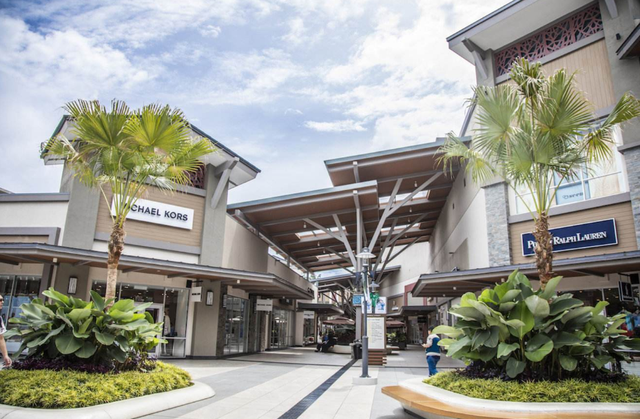双语阅读|阿里巴巴和亚马逊将展望全球

IN SEPTEMBER 2014 Jeff Bezos announced his first big investment in India, hopping aboard a colourful bus in Bangalore. It was the start of a rapid $5bn investment in India, part of Mr Bezos’s plans to take Amazon global. Two months later Alibaba’s Jack Ma appeared in Delhi. “We will invest more in India,” he declared. The following year Alibaba put $500m into Paytm, an Indian digital-payments company. This year it led a fundraising round for Paytm’s e-commerce arm. The two giants seem set for an epic clash in India.
2014年9月,杰夫·贝佐斯宣布在印度的第一次大投资,希望登上班加罗尔多彩的巴士。这是在印度的一笔快速推进的50亿美元投资的开始,也是贝佐斯亚马逊全球化计划的一部分。两个月后,阿里巴巴的马云出现在德里。他说:“我们对印度投入更多资金。”。次年,阿里巴巴对印度数字支付企业Paytm投资5亿美元。今年,阿里领投了对Paytm的电子商务平台的融资。这两个电商巨头似乎注定要在印度爆发史诗级战役。
But in their home markets they have so far stayed out of each other’s way. Amazon has only a tiny business in China. Alibaba’s strategy in the United States has been to help American businesses sell in China and vice versa. “People always ask me, when will you go to the US?” says Alibaba’s CEO, Mr Zhang. “And I say, why the US? Amazon did a fantastic job.” The two firms have mostly invested in different foreign markets: Alibaba across South-East Asia and Amazon across Europe. But much of the rest of the world is still up for grabs.
不过,在他们各自的国内市场里,他们迄今为止一直保持着互不相干涉的态度。亚马逊在中国只有一家规模很小企业。阿里巴巴在美国的策略是帮助美国企业在中国销售,或是帮助中国企业在美国销售。“人们总是问我,你什么时候去美国?”阿里巴巴首席执行官张勇说道。“我说,为什么是美国?亚马逊的成就非凡。”这两家企业在不同的海外市场有大量的投资:马里遍布在东南亚,亚马逊占据欧洲。不过,全球仍有许多其他地方要争夺的空间。
The biggest tussles will probably be over growing economies and cross-border commerce. Alibaba aspires to serve 2bn customers around the world within 20 years—a benevolent empire that supports businesses. In some cases it has begun with digital payments, as in India with Paytm. In others it has invested in e-commerce sites, as with Lazada, in South-East Asia. But it intends to build a broad range of services within each market, including payments, e-commerce and travel services, and then link local platforms with Alibaba’s in China.
最大的争压可能是在增长性经济体和跨境电子商务。阿里巴巴立志要在20年内服务全球的20亿消费者——成为一个支持各行各业的友好帝国。在一些方面,阿里从数字支付开始,如在印度与Paytm的合作。在其他方面,阿里投资电子商务网站,如在东南亚与Lazada合作投资。不过,它打算在每一个市场打造一系列的数字服务,包括支付、电子商务、旅游服务,然后将当地的平台和在中国的阿里巴巴联系起来。
Mr Ma wants to enable small firms to operate just as nimbly as big ones on the global stage. Alibaba helps Chinese companies sell in places such as Brazil and Russia, and assists foreign firms with marketing, logistics and customs in China. Eventually it hopes to use its technology to link logistics networks around the world so that any product can reach any buyer anywhere within 72 hours. That is still a long way off, but it gives a glimpse of the company’s staggering ambition.
马云希望小企业能像大公司一样在全球舞台上自如经营。阿里帮助中国企业在巴西和俄罗斯等地销售,协助外国企业在中国市场营销、运输和通关。最终,阿里希望利用它的技术将世界各地的物流网络连接起来,任何产品在72小时内能到达买家手中。这仍然是一段很长的路要走,但它让人看到了阿里的雄心壮志。
Amazon already earns more than one-third of its revenue from e-commerce outside North America. Germany is its second-biggest market, followed by Japan and Britain. This year it bought Souq, an e-commerce firm in the Middle East. Its criteria for expansion elsewhere include the size of the population and the economy and the density of internet use, says Russ Grandinetti, head of Amazon’s international business. India has been one of its main testing grounds.
亚马逊的电商收入有三分之一来自北美以外地区。德国是其第二大市场,其次是日本和英国。在2016年,亚马逊收购了中东的一家电商企业Souq。亚马逊的国际业务主管Russ Grandinetti称,亚马逊在其它地区的扩张标准包括了人口规模、经济体量以及互联网使用的密度。印度一直是它的一个主要试验地区。
Amazon, like Alibaba, also wants to help suppliers in any country to sell their products abroad. An Amazon shopper in Mexico, for instance, can buy goods from America. Mr Grandinetti sees such cross-border sales as an increasingly important component of Amazon’s value to consumers and sellers alike.
与阿里一样,亚马逊也希望帮助其他国家的供应商在国外销售产品。例如,在墨西哥,亚马逊消费者购买美国商品。Grandinetti认为,这种跨境销售成为亚马逊对消费者和销售者的价值所在一部分,而且是越来越重要。
Yet both companies run the risk that strategies which did well in their home countries may not succeed elsewhere. In China, for instance, the popularity of e-commerce relied on a number of special factors. China’s manufacturers often found themselves with excess supplies of clothes and shoes; Alibaba provided a place to sell them. Alipay thrived because few consumers had credit cards. China has also benefited from having cheap labour and lots of big cities—more than 100 of them with over 1m people—creating a density of demand that made it worthwhile for logistics firms to build distribution networks.
然而,两家企业都面临这样的风险:在本国行得通的战略可能不会在其他地方获得成功。例如,在中国,电子商务的普及有赖于一些特殊因素。中国的制造商经常发现自己的衣服和鞋供应过剩;阿里巴巴提供了一个销售平台。支付宝蓬勃发展的原因在于拥有信用卡的消费者数量不多。中国也受益于拥有廉价劳动力和数量众多的大城市——100万人以上的城市超过100个——创造的需求密度使得物流企业愿意建立渠道网络。
As they expand, however, Amazon’s and Alibaba’s business models may shift and, in some markets, start to converge. So far the companies have differed in important ways. Amazon owns inventory and warehouses; Alibaba does not. But Alibaba has a broader reach than Amazon, particularly with Ant Financial’s giant payments business. As Amazon grows, it may become more like Alibaba. In India, for instance, regulations prevent it from owning inventory directly. And Amazon recently won a licence from the Reserve Bank of India for a digital wallet. Alibaba, for its part, may become more like Amazon. As the Chinese firm set its sights on South-East Asia, it invested in SingPost, Singapore’s state postal system. In September it became the majority owner in Cainiao, a Chinese logistics network, and said it plans to spend $15bn on logistics in the next five years.
然而,在不断扩张的情况下,亚马逊和阿里巴巴的商业模式可能会发生变化,在某一市场,会开始趋同。到目前为止,这两家企业在重要的方面存在分歧。亚马逊拥有自己的库存和仓库;阿里巴巴却没有。不过,阿里巴巴的经营范围超过了亚马逊,尤其是拥有蚂蚁金融的巨大支付业务。随着亚马逊的发展,它可能会变得更像阿里巴巴。例如,在印度,法规禁止亚马逊直接拥有库存。亚马逊最近从印度储备银行获得了数字钱包许可。就其本身而言,阿里巴巴可能会变得更像亚马逊。同中国企业着眼于东南亚一样,它投资了新加坡国家邮政系统SingPost。在九月,阿里成为中国物流网络菜鸟网络的大股东,并表示计划在未来五年里,要在物流上投入150亿美元。
Their advances may be slowed by other rivals. Smaller firms can flourish in niches. Flipkart, whose backers include Naspers and SoftBank, is competing fiercely with Amazon in India; the two companies routinely bicker over which has the bigger market share. Yoox Net-a-Porter, an online luxury-goods seller, is also expanding around the world.
他们的发展可能会因为其他竞争对手放慢脚步。小企业在利基市场里蓬勃发展。有Naspers和软银投资的Flipkart在印度与亚马逊展开激烈竞争;两家企业经常对谁拥有更大的市场份额而吵得不可开交。奢侈品销售网站YOOX Net-a-Porter也在全球扩展。
Among the questions facing the two giants are whether other technology firms will pour more money into e-commerce, and what partnerships might emerge. Tencent’s WeChat Pay is already challenging Alipay in China. About one-third of WeChat’s users in China shop on that platform. Tencent is trying to recruit shops to accept its payment app in other countries, too, and recently took a stake in Flipkart. In deploying its services abroad, Tencent might get a helping hand from Naspers. The South African company owns about one-third of Tencent and has backed e-commerce firms around the world. Facebook is now muscling in on this business by making it easier for its users to buy goods through its messaging service as well as its other platforms, WhatsApp and Instagram.
两大巨头面临的一个问题是其他的科技企业是否会对电商投入更多资金,哪些合作关系可能出现?腾讯的微信支付在中国向支付宝发起挑战。微信的大约三分之一中国用户在微信平台上消费。腾讯正在尝试招募其它国家的店家接受其支付应用程序,并在最近投资了Flipkart。在海外推广其服务过程中,腾讯有可能获得了Naspers的帮助。这家南非公司拥有腾讯约三分之一的股份,同时投资了世界各地的电商企业。Facebook现在也在这个领域小试身手,让用户通过其通讯服务等平台(如WhatsApp和Instagram)更轻松地购物。
The A-list still stands
一流企业依然矗立
For now, however, Amazon and Alibaba remain each other’s most formidable international rivals. Success in e-commerce requires scale, which needs lots of capital. Local e-commerce firms in India have come under pressure from investors to boost profitability. Amazon has no problems on that score. As Amit Agarwal, head of Amazon India, puts it: “We will invest whatever it takes to make sure we provide a great customer experience.”
然而,目前来说,亚马逊和阿里巴巴仍然是彼此最大的国际竞争对手。在电子商务领域的成功需要规模,而规模需要大量的资本投入。印度本地电商企业在投资者的压力下要提高盈利能力。亚马逊在这个问题上没有问题。亚马逊的印度负责人Amit Agarwal说:“我们将竭尽所能确保我们提供卓越的客户体验。”
Big firms also have a natural advantage as they expand, because technologies developed for one market can be introduced across many. “It’s like a Lego set,” says Lazada’s chief executive, Maximilian Bittner. He can use pieces of Alibaba’s model, such as algorithms for product recommendations, to improve Lazada’s operations. Amazon’s investments in machine learning have myriad applications anywhere in the world.
大企业在扩张时也具有天然的优势,因为为一个市场开发的技术可以用在在许多市场。“这就像一个乐高积木,“Lazada首席执行官Maximilian Bittner说。他使用阿里巴巴产品推荐算法等的模块来改进Lazada的运营工作。亚马逊在机器学习方面的投资为世界各地的应用提供支持。
That does not mean that Amazon and Alibaba will dominate every country around the world, nor that they will crush every competitor. Bob Van Dijk, chief executive of Naspers, maintains there is room for many operators: “I don’t believe in absolute hegemony.” But given the two giants’ ambitions and the benefits of scale, they are bound to become more powerful and compete directly in more places. That has implications for all sorts of industries, but particularly the retail sector.
这并不意味着亚马逊与阿里巴巴将主宰世界上的每一个国家,也不意味着他们将击败每一个竞争者。Naspers首席执行官Bob Van Dijk坚持认为,电商企业还是有空间的:“我不相信绝对的霸权“。不过,考虑到两大巨头的野心和规模效益,他们肯定会变得更加强大,在更多的地方直接竞争。这对所有行业,尤其是零售业,都会产生影响。
编译:张会芳
审校:张爽
编辑:翻吧君
来源:经济学人
阅读·经济学人
全球房地产市场努力适应电子商务
![]()
翻吧·与你一起学翻译
微信号:translationtips

长按识别二维码关注翻吧






















评论